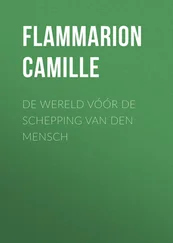“Mr. Lengsley, I’d be happy if you just call me Isamu – when we’re among us.”
Ichik was apparently included in “among us,” and the fact that the Prince spoke to him in English – which he knew surprisingly well – was a sign that he was serious.
“Good, Isamu … whatever you want. But if I accidentally ignore certain elements of expected etiquette, then –”
“It is already forgiven,” the Prince replied, smiling.
“So what can I do for you?”
“I would like your opinion as an outsider.”
Lengsley pressed his lips together briefly. Isamu did not act diplomatically, but on the other hand this word corresponded exactly to the thoughts he had just had himself. So why should he blame the young man? “My opinion on what?”
“To my fate.”
Lengsley immediately felt overwhelmed, and the alarmed feeling returned. The question was asked so clearly, without any self-pity, and there was a great deal of uncertainty behind it, but at the same time there was also self-knowledge about his own role – it was so much that he did not know at which level he should answer and why he was actually chosen to deal with this topic. He had, of course, talked to Aritomo about the Prince, and they had both agreed that Isamu was a poor guy who would find it very difficult to assert himself in the face of all the forces that were pulling at him. The boy had also started talking to Aritomo a few weeks ago, and Aritomo had told Lengsley about it in a nutshell. The Prince was looking for advice old Sawada obviously couldn’t give him.
But was he, the Gaijin, capable to do so?
The Prince seemed to think so. Or he was desperate enough to try to talk to anyone who was available to him.
“Let’s sit down again,” Lengsley murmured. The nighttime fire around which they had gathered had already started to go out, so he added some branches. “So your fate – I can’t see the future, my prince.”
Isamu looked into the flames and nodded. “Nobody can. But I would like to know what you would advise me, which way to go.”
“It depends on your wishes and ideas.”
“I thought of my duty.”
Lengsley nodded. “When fulfilling your duty is your wish –”
“What is my duty?”
“Good question. If we believe Captain Inugami –”
“That’s my problem,” Isamu interrupted. Lengsley saw the otherwise controlled and motionless mask that the Prince always seemed to wear getting crumbly. Emotions became visible, and they had to be quite violent. “I do not believe him.”
Lengsley didn’t know what to say. It was difficult for him to internalize the Japanese concepts of discipline and obedience. After all, it wasn’t just about belief. Many may have doubts about the Captain’s plans. But no one admitted it openly, except perhaps Aritomo, who was high up in the hierarchy itself. Lengsley was not a soldier, but he knew what the Japanese thought and what alternatives they had if they tried to break the cycle of obedience and discipline. Often enough, only dishonor or even suicide remained. His comrades were too quick at hand with death for Lengsley’s taste.
Isamu knew all of this much better than Lengsley, because he had been trained that way all his life. If he was willing to cross these invisible barriers, the limits that Japanese society had placed around him, the Prince’s despair must be greater than Aritomo had assumed. And often desperate actions grew out of desperation. The fact that Isamu spoke to Lengsley – well considered – certainly had its meaning.
“I don’t want to rule over these people, Mr. Lengsley, neither by name, as a mere symbol, nor seriously. They have their own dynasties, as venerable and old as those I am from. I have no right to do so. And I do not share Captain Inugami’s attitude, who treats the people here like things or pawns like they are just tools with which to accomplish his great plans. I know that I will never see my home again. And you know what? It doesn’t matter to me. I do not long back to the court, I do not miss the rules, the stiff ceremony and all the expectations that have been imposed on me without ever having a realistic prospect of sitting on the throne. I see this journey as a way to freedom.”
Lengsley nodded slowly. “But the captain blocks this path, Isamu.”
“That’s the way it is. I cannot and will not accept that.”
Lengsley was surprised at the Prince’s intense speech. Put forward in well-spoken words that betrayed both his intelligence and his education, he had not turned clouded his true feelings and aspirations. Ichik sat next to him and probably understood more than enough of what his friend had just said. Lengsley felt a great burden placed on his shoulders with the Prince’s trust. If Isamu revealed his true feelings and intentions to him and Aritomo, wasn’t there a great responsibility for both of them? And how did one want to do it justice? The hope of advice and assistance was clearly evident from the Prince’s words. Lengsley was still clearly overwhelmed with it.
To say this to the Prince would cause too much disappointment. Then who else did he have to turn to?
“Have you spoken to Aritomo Hara about these things?”
“Once and not so clearly. It’s difficult for him too.”
Isamu had put the first officer’s dilemma in one simple sentence. That he said this spoke of his ability to observe. And it became Lengsley’s burden. Isamu, in his perception of hierarchy, obedience, honor, and discipline, had come to the conclusion that Aritomo Hara, with all his goodwill and understanding, had his hands tied in many ways. But Lengsley …
Lengsley was the Gaijin, even at the best of times one who was on the margins, outside, who didn’t belong, couldn’t belong at all. And Isamu, in his thinking, with his doubts and hopes, felt more like a stranger, more and more so, and apparently believed that Lengsley was most likely to be the one who would understand … and help him.
It had a certain logic, but it didn’t help the British very much.
“What do you expect of me, Isamu?”
The Prince nodded slowly, gave Ichik a long look. He took a deep breath.
“I know that it sounds insane and dangerous, Mr. Lengsley. But I want to do what I can only accomplish before the golden cage around me is completely closed. I want to run away, Mr. Lengsley.” He stared into the Britishman’s eyes as if this would prove the seriousness of his intentions. “I want to run away as soon as possible, and I want you to help me with that.”
Ixchel’s sister Nicte cried quietly. Aktul put a hand gently on her mouth, which immediately silenced the girl. Ixchel narrowed her eyes after nodding encouragingly at her sister. Nicte didn’t cry out of fear, but out of exhaustion. Ixchel would never dream of reproaching her for that.
From the edge of the forest they could see the first farmsteads that surrounded the city in a wide circle. It was early morning, the chill of the night was still in their bones. They had waited for the darkness on a tree, sitting in the mighty branches, half asleep, half awake, a reason for Nicte’s exhaustion and her helpless reaction to it. They had already been on the road for days to make sure that pursuers kept their distance. They had fed on what the forest had provided, and Aktul was an experienced hunter-gatherer. They weren’t hungry, but they were dirty, tired, and especially the little one cried often. A bad environment to deal with the violent death of one’s mother, the shock of flight, the struggles, the insecurity, and fear. Ixchel dreamed violently every night when she got some sleep, and the horror of the visions terrified her. Nevertheless, she did not wake up crying but with a quiet determination not to suppress the violence of these images, but to use it instead. Her goal had to be to use the power behind it to turn it against those responsible for their misery.
Читать дальше











